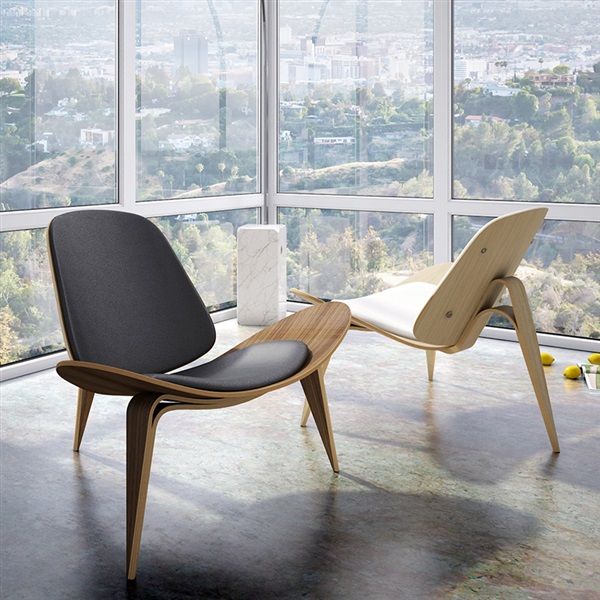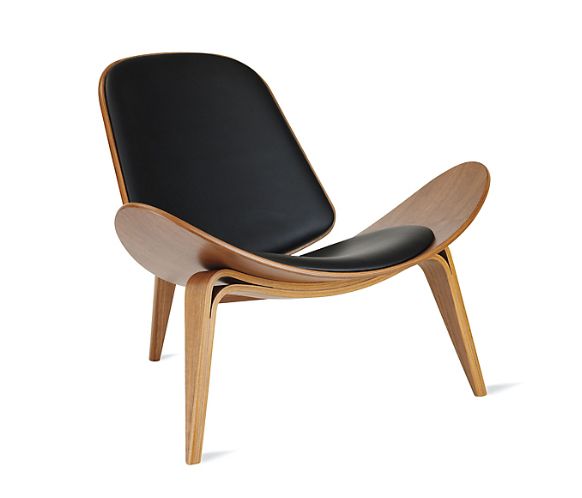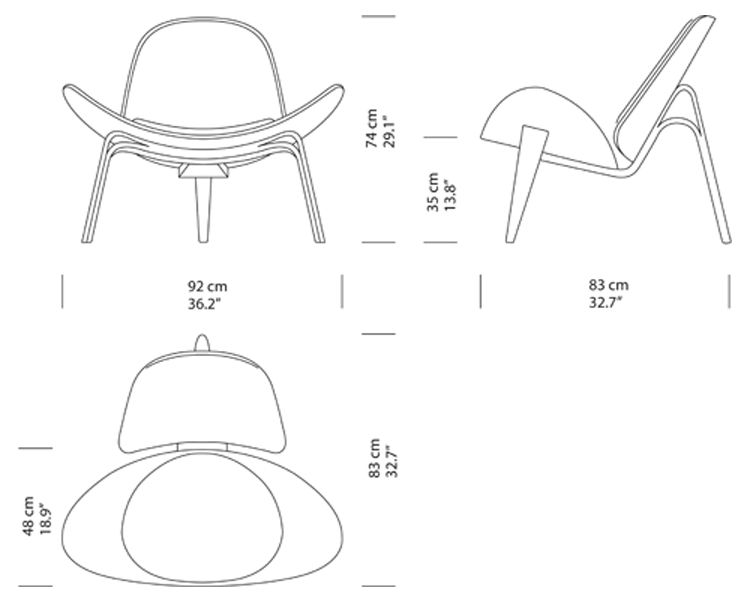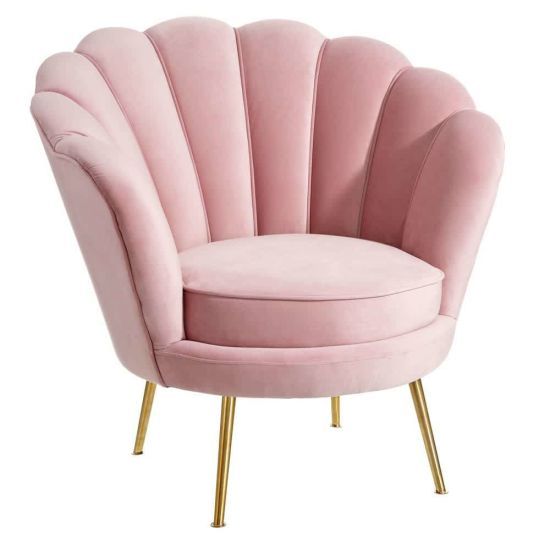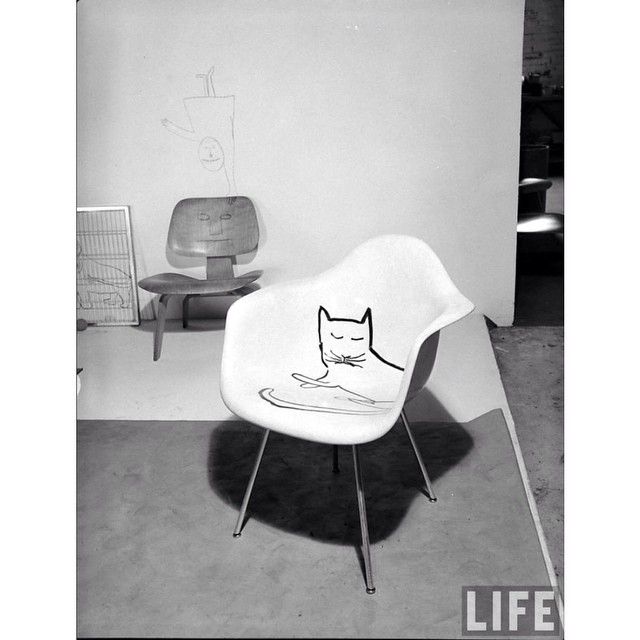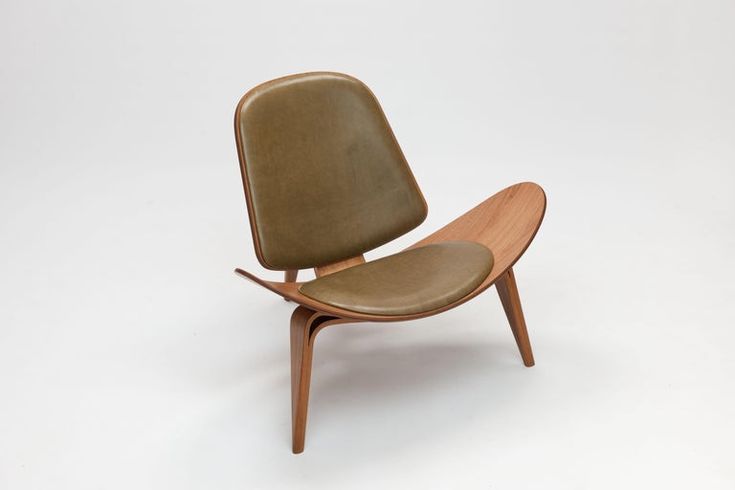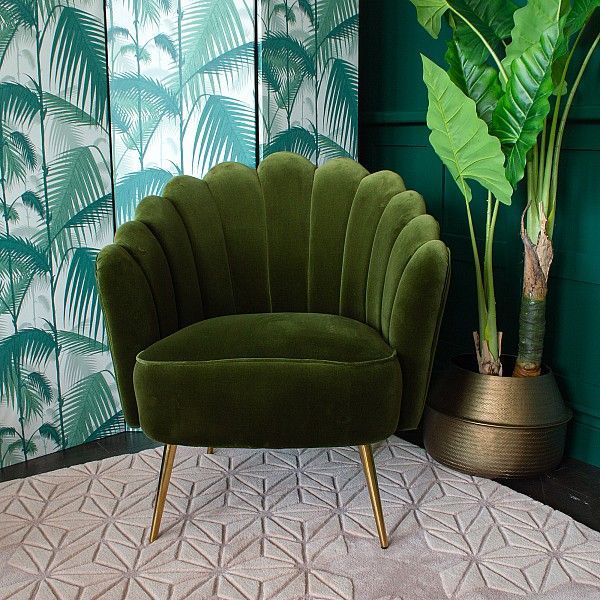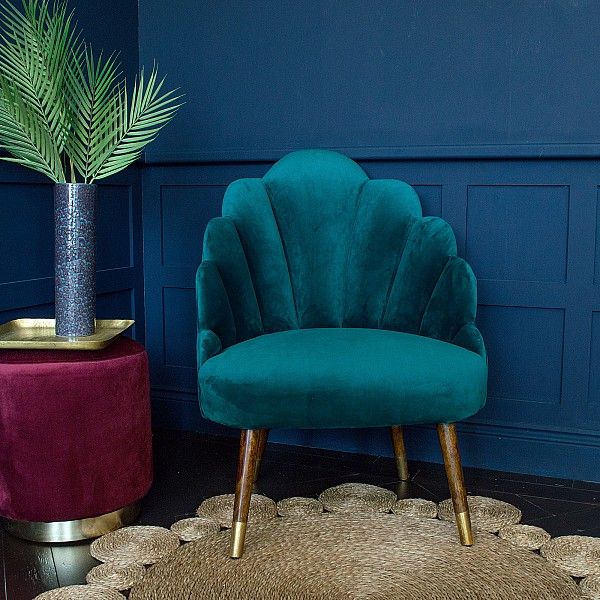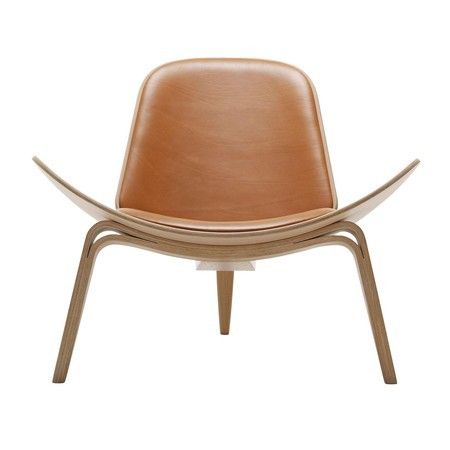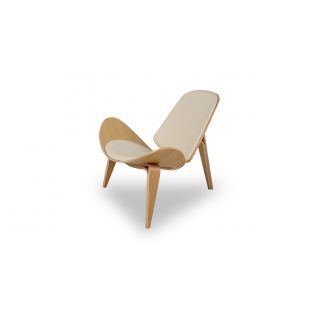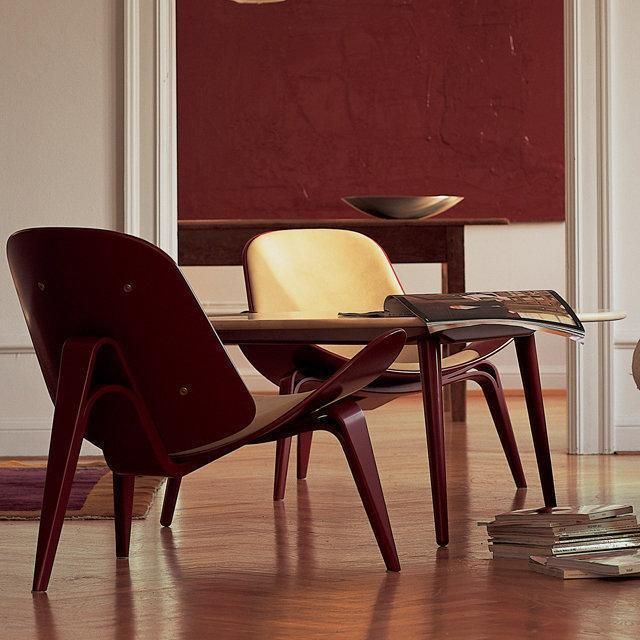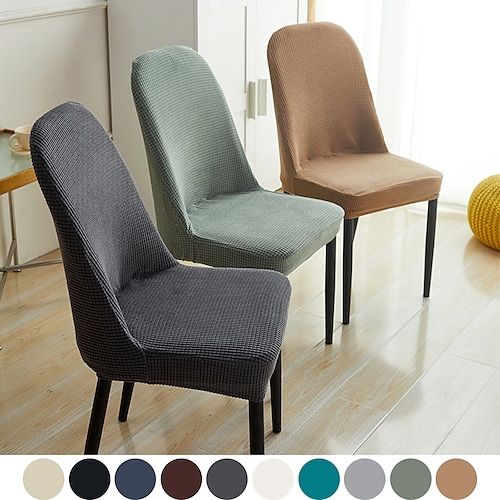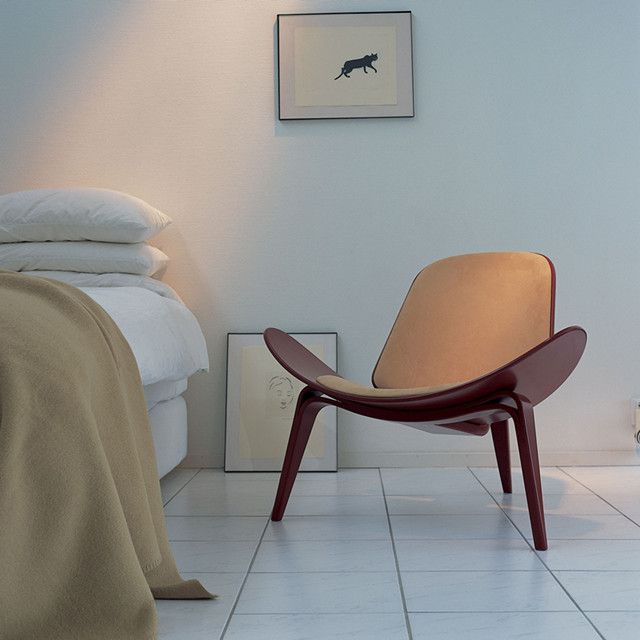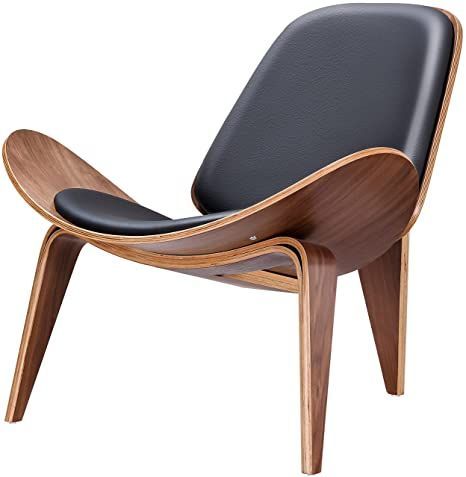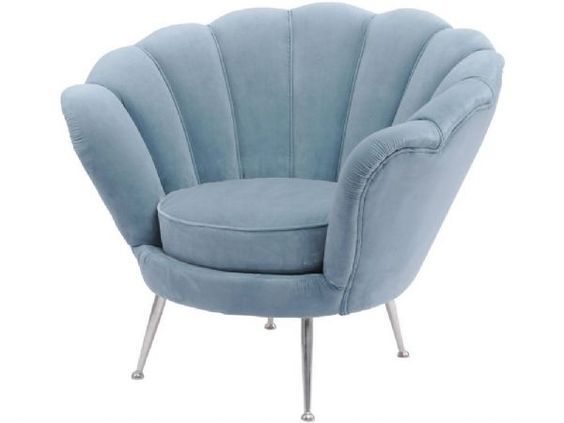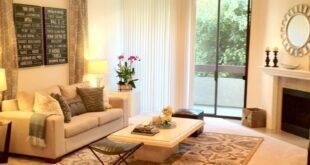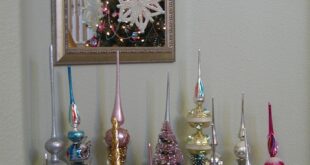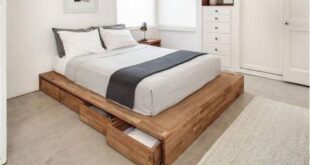The CH07 Lounge Chair, commonly known as the Shell Chair, is perhaps one of the most intriguing furniture designs of the 20th century. Its appeal is definitely not trivial, which is probably why the CH07 chair wasn’t an immediate commercial success story. It took almost 35 years for people to properly understand the unconventional shape of this extraordinary chair.
Story
The Shell Chair was designed by Hans J. Wegner – a legendary figure of Danish modernism and a famous furniture designer who had a great passion for chairs. hence the nickname “the master of the chair”. Wegner is responsible for more than 500 chair projects, many of which were later mass-produced.
Although the first Shell Chair was introduced as early as 1963, its history dates back to 1948, when Wegner began experimenting with a (then) relatively new method of making plywood. A year later he presented a prototype made of bent plywood, resting on an unusual three-legged base. In 1963 he revived three-legged chair design by designing the Shell Chair, which made its official debut at a Danish furniture show. Even though the chair was well received by critics, its avant-garde, futuristic shape caused some reluctance among the general public. Because of this, mass production was restricted, leaving only a small initial batch for sale.
The Shell Chair was brought back to life by furniture company Carl Hansen & Son, who brought the CH07 back into production in 1997. The Shell Chair, manufactured under the new brand, immediately experienced a commercial breakthrough. It has also received numerous design awards.
design
The shape of the chair is rather ascetic, but still refined and unusual. Its design embodies its creator’s famous creed that states: “A chair should have no rear view.” It should be beautiful from all sides and angles. “In fact, the chair with its famous curves looks very appealing and futuristic from every angle. The curvy, organic shape of the CH07 was achieved through the use of curved plywood developed by Charles Eames. Hence the resemblance between the Shell Chair and the famous LCW Chair is undeniable.
The bent plywood used for production consists of several layers of oak or walnut veneer, which are then pressed into the desired shape. A striking design feature is the chair’s seat shell with its wing-like parabolic shape, which gives the chair its famous smiley face. The tripod base is another notable part of the chair. The front legs are made from one piece of continuous veneer laminate tapered at both ends. The situation is similar with the hind leg, which also serves as a support for the backrest. The curves of the front legs are extended laterally next to the curvature of the curved seat shell. This solution is due to the soft, supple appearance of the chair.
An extremely low center of gravity makes the chair very stable, even though it only stands on three legs. The backrest of the CH07 is slightly reclined, giving a comfortable, relaxing feeling. The seat and backrest are available with different fabric and leather covers. Although the chair looks like a masterpiece of modern art, it is fully functional and surprisingly comfortable.
Interesting facts
-
In developing the Shell Chair, Wegner tested various leg configurations with 1:5 scale models. Eventually, the three-legged solution was adopted from his 1949 prototype.
-
To celebrate the 50th anniversary of the design, Carl Hansen & Son released two special editions of the Shell Chair in 2013:
The Maharam Project Shell Chair and the Jubilee Shell Chair.
The Maharam Project Shell Chair has been upholstered with various fabrics from the Maharam Textiles Company.
The Jubilee Shell Chair had an oil-treated teak seat and back and an oil-treated oak base. It was made the same way in the early 1963 models. The chair has been upholstered with rare and expensive red Niger goat skin which has a very dense structure resulting in an extremely strong and durable quality of leather.
